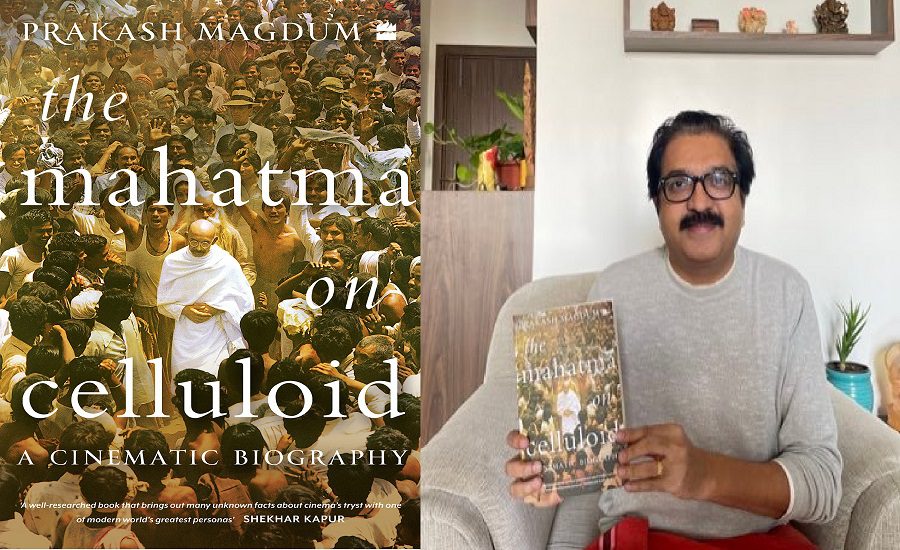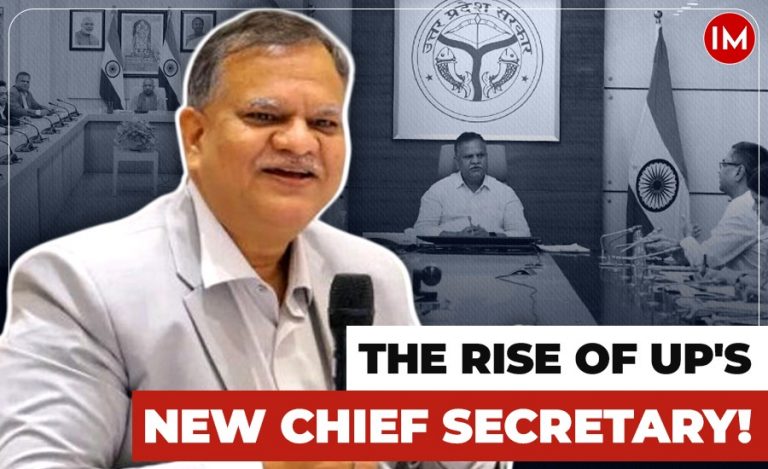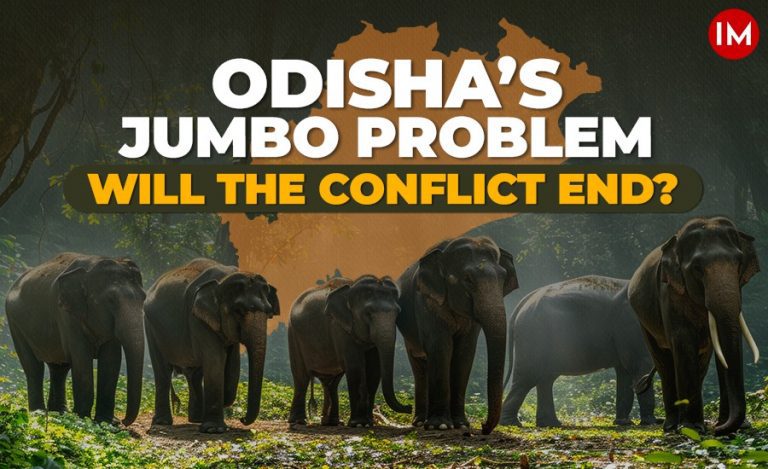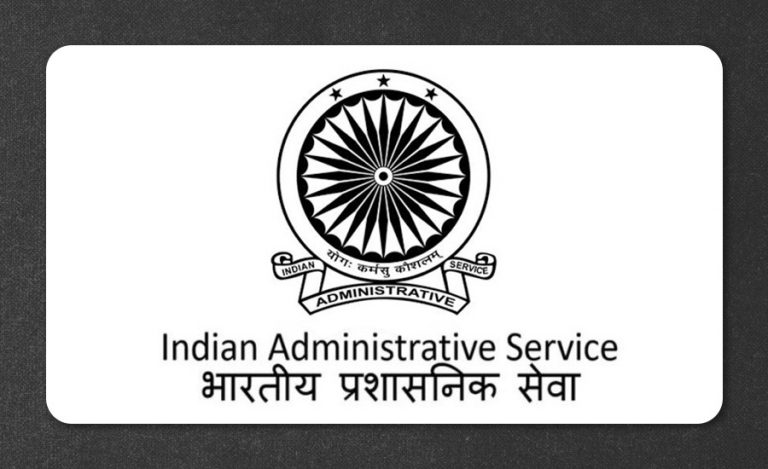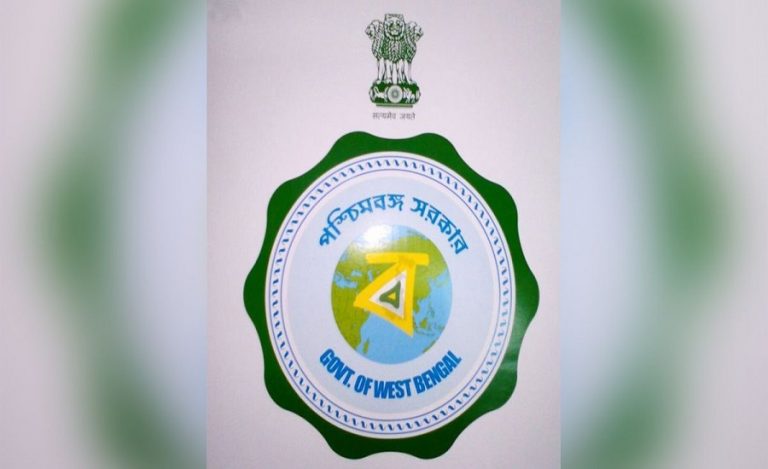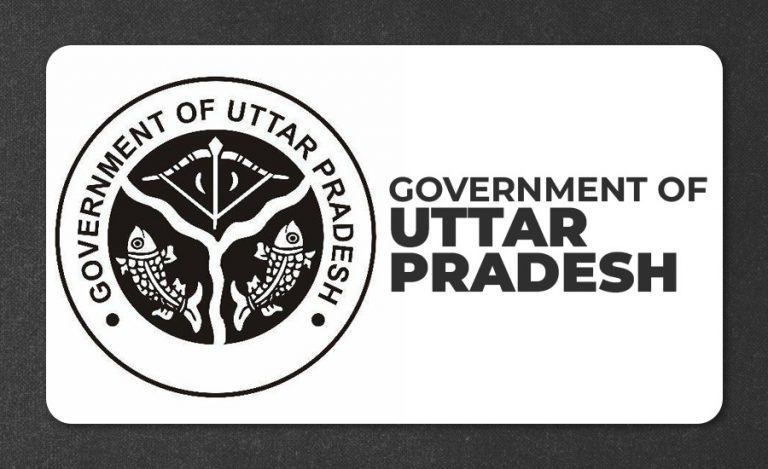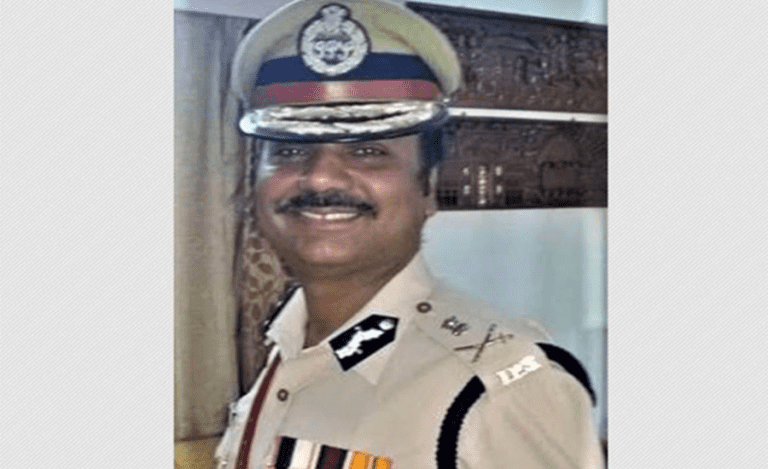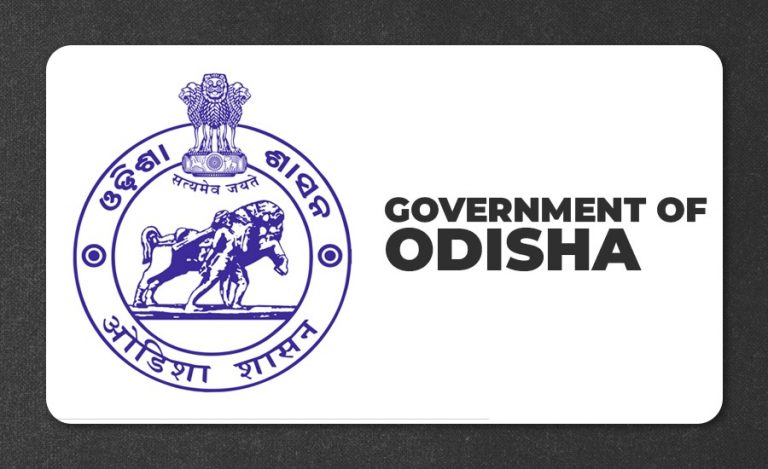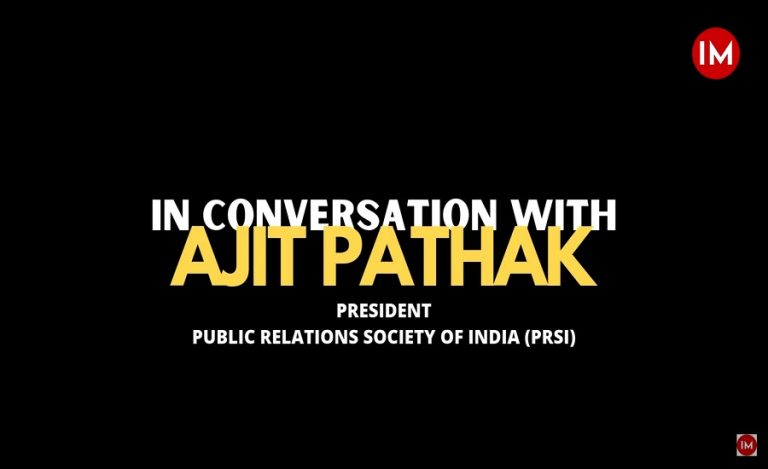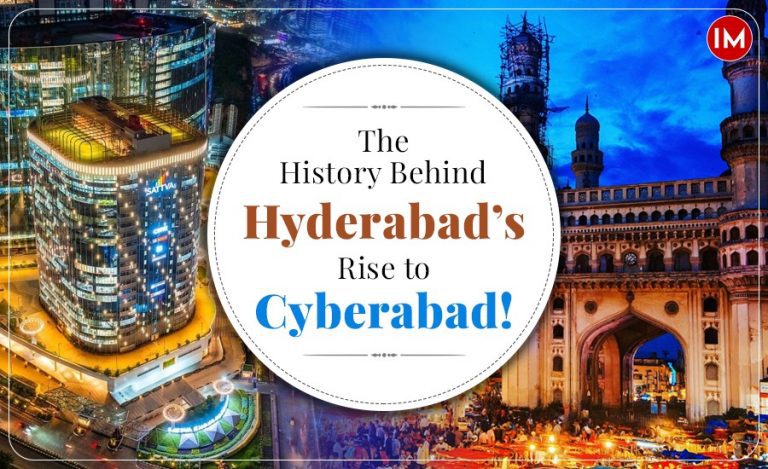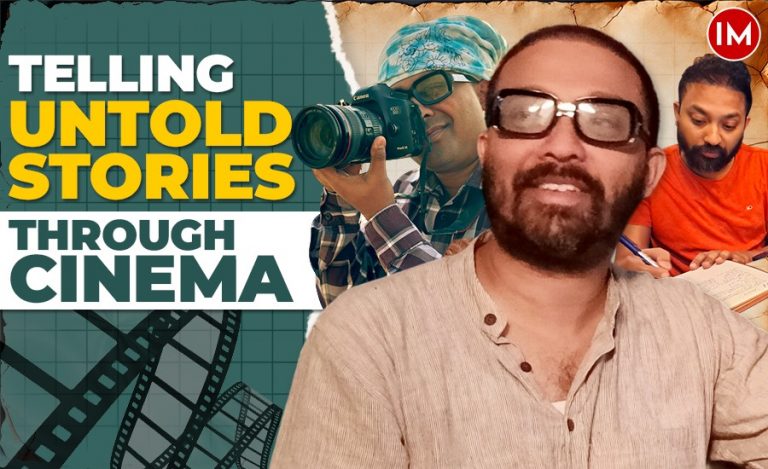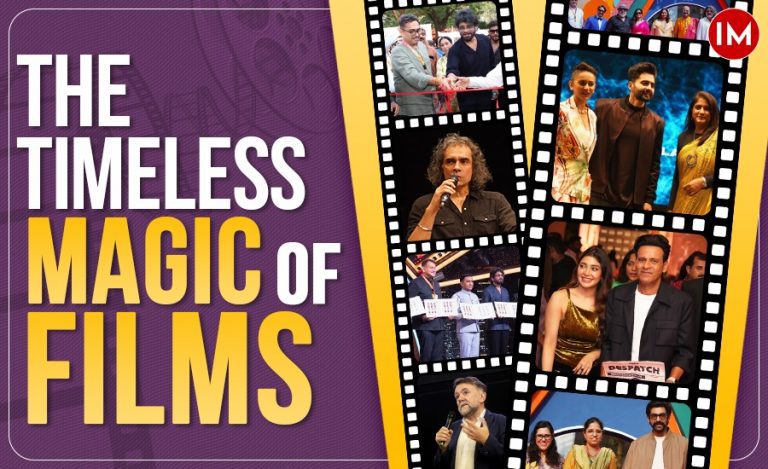Mahatma Gandhi is one of the most famous political personalities in history. He also remains one of the most photographed and filmed persons in the world. The camera followed him like a shadow throughout his life. A 1999-batch Indian Information Service (IIS) officer Mr Prakash Magdum’s latest book ‘The Mahatma On Celluloid’ talks about him from a cinematic perspective.He has turned his book into a cinematic biography of Gandhiji. This book will give you a new perspective on Gandhiji and Cinema’s role in society.
From A.K. Chettiar’s Mahatma Gandhi: Twentieth-Century Prophet to Attenborough’s Gandhi, this book unravels many unknown facts about the newsreels, documentaries and films made on Gandhi. Based on extensive research, the book also includes excerpts and anecdotes from interviews with filmmakers like Rajkumar Hirani, Vidhu Vinod Chopra, Feroz Abbas Khan and Girish Kasarvalli who share their insights on the Mahatma’s enduring tryst with cinema.
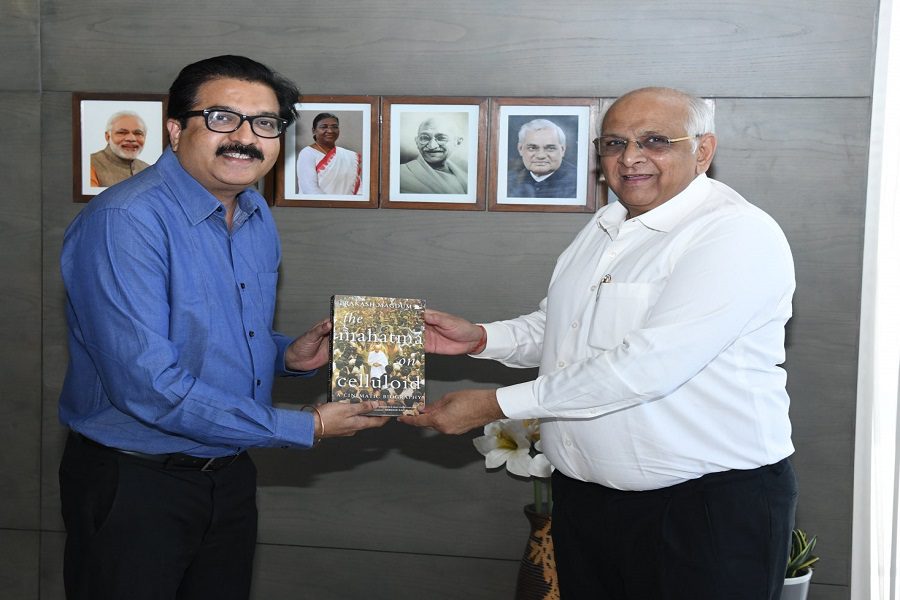
Speaking with Indian Masterminds, Mr. Prakash said, “The paradox about Mahatma Gandhi is that he is one of the most filmed men in the world. But he did not like the cinema, especially as a medium. He only saw 2 movies in his whole life. He always thought that cinema has no value and not a thought provoking thing. My book is on this paradox.”
BOOK-THE MAHATMA ON CELLULOID
Gandhi came to India from South Africa in 1915. And around the same time cinema was starting in India. “That’s why Gandhi’s journey and the journey of our film industry are almost parallel. India’s first film was made in 1913,” he added. From his personal life to his values and principals, films and biopic movies have been made in so many different languages and are still being made. This book has focused on this cinematic universe. This explores films on him, films and filmmakers inspired by him, films he watched & so on. This book also gives a perspective of history & the society during those times.
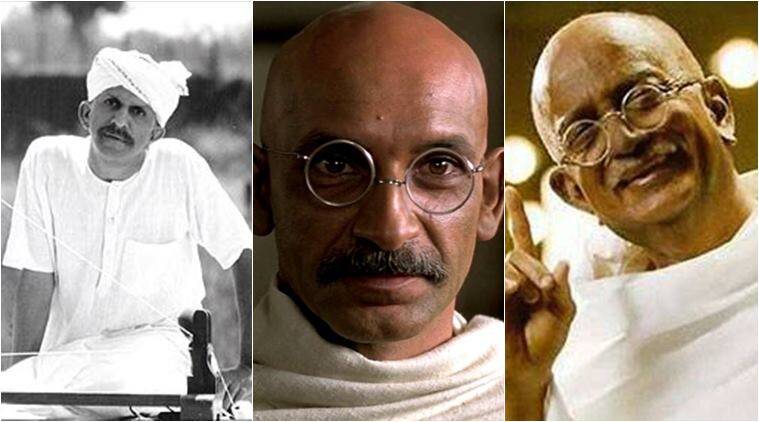
In 2019, Gandhiji’s 150th birth anniversary was celebrated across the country. At that time Mr. Prakash was the director of the National Films Archives and was organizing several programs including film festivals and exhibitions on Gandhi across the country. It was at that time that the idea of writing this book came to him. Being a director of National Films Archives, database and library was easily accessible to him. So after deep research and much hard work for almost 2 years, this book was finally published in the year of 2021.
KOORMAVATARA
The book is a brilliant amalgamation of history and cinema. The book contains very interesting information and stories from cinematic history. There is a chapter in this book, Koormavatara. In the year 2011 a Kannada film came out with the same name, directed by Girish Kasaravalli. This chapter has been written on that film. Koormavatara is the incarnation of Lord Vishnu as a turtle. In this incarnation, Lord Vishnu helped gods and demons to churn the milky sea and take out the nectar. It also means that Kurma or Tortoise is carrying the weight of the whole world on its back.
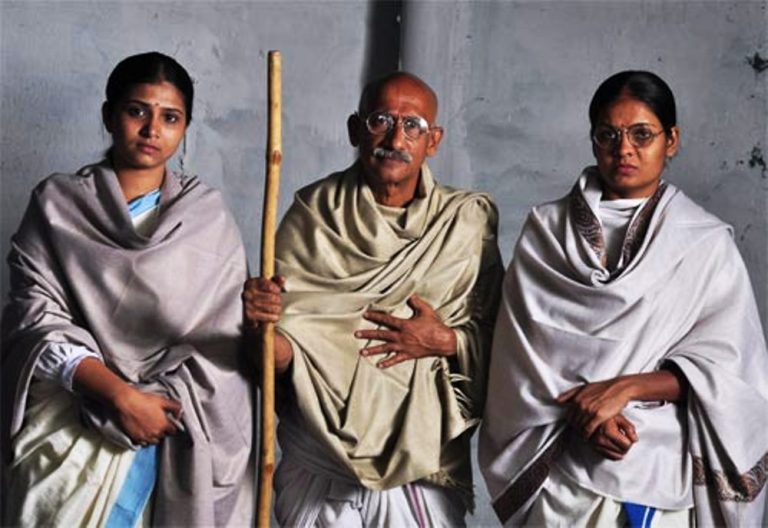
Mr Prakash, who hails from Sangli, Maharashtra said, “The film Koormavatara also had the same motive that Ganhiji’s principals are very important and necessary for the survival and sustainable development of the world. I also have the same belief and this is my favourite film on Gandhi. I have not seen such a beautiful depiction of Gandhi on the celluloid screen in any other film.”
BEING IIS, A WRITER
Being a bureaucrat how much time does he get for writing? Prakash says that he has always a great interest in films, as well as in Gandhiji. But in Covid days, he got more time for writing, because the office work was not that much at that time. “It is important for a writer that he gets the right environment to write and time to think. This is what happened to me during Corona,” he said.
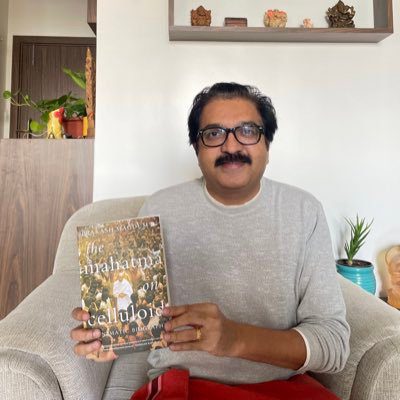
CINEMA AS A MEDIUM
Cinema is a very effective and powerful medium. This is one of the most powerful mediums of art. “In my view, this is a medium to enrich human life. Many great people like Einstein believed that there was no one like Gandhi. Gandhi’s whole life is an example of how much one person can do in his life and inspire billions. Yes, he was also human and therefore had some shortcomings. But it is up to us what to take.Gandhi will live forever as a character for cinema,” Mr Prakash said.

